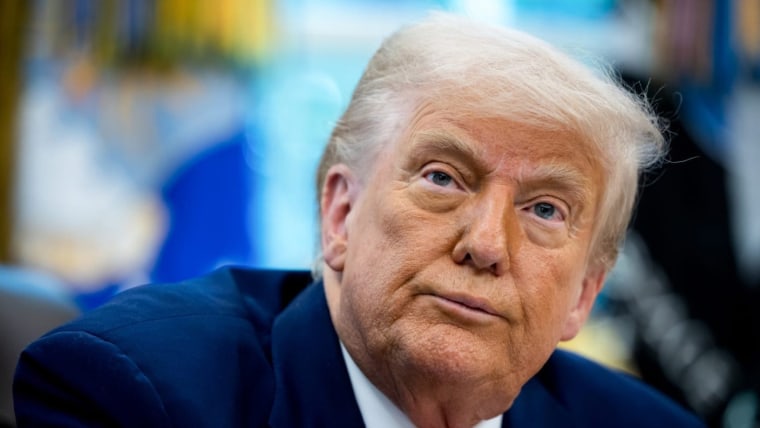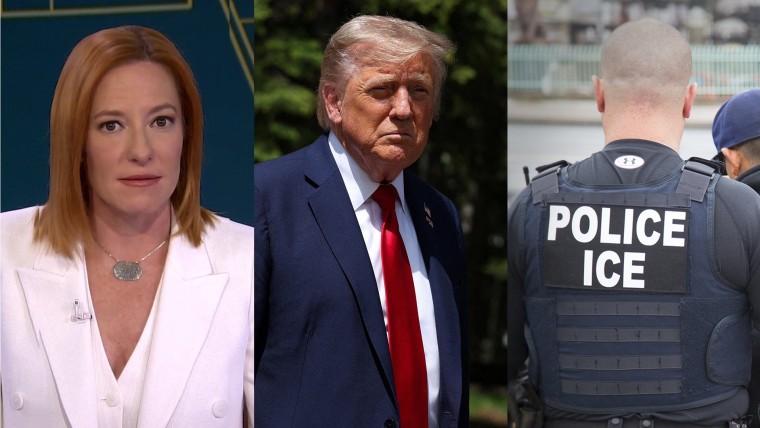As sickening as it is to see Immigration and Customs Enforcement agents snatch people off our streets, it’s even more disturbing to see so many of them go about their work with their faces masked. If you were to make a list of things that viscerally register as un-American, few things would rank higher than the spectacle of secret police pouncing and disappearing meat plant workers and nannies and graduate students.
The basic principle is that the police are accountable to the public. And that requires, at a minimum, knowing who the police are.
Not only have Americans been primed to expect to see police officers’ faces, we’ve also been told that we can demand an officer’s name and badge number. Granted, that has largely worked better in theory than in practice. But the basic principle is that the police are accountable to the public. And that requires, at a minimum, knowing who the police are.
“We’re seeing the rise of secret police — masked, no identifying info, even wearing army fatigues — grabbing & disappearing people,” California state Sen. Scott Weiner wrote on X Monday before calling it “antithetical to democracy & harms communities.” Weiner and another Democratic colleague, state Sen. Jesse Arreguin, have introduced a bill called the “No Secret Police Act,” which Weiner said “can help end the fear & chaos” that police wearing masks “creates in communities.”
I don’t know that a California state law could restrict how federal law enforcement officials present themselves publicly; even so, a bill that generally restricts local and state law enforcement officials from covering their faces is a necessary, if symbolic, rebuke of the encroaching police state.
Of course, a California liberal drafting a bill that aims to increase police officers’ accountability to the public was miscast by Fox News host Will Cain as a measure that imperils the lives of law enforcement officers. “Hard to believe this is real,” Cain said.
A generation ago, a number of American conservatives were fond of using the term “jack-booted government thugs” to describe federal agents. The federal agents who grabbed 6-year-old Elian Gonzalez from his Miami relatives in 2000 so the boy could be returned to his father in Cuba were especially reviled — even though their faces were visible. Cain’s performative disbelief is representative of a prevailing attitude among modern-day conservatives that aggressive policing is good policing — but only if Republicans are in charge of the police.
It shouldn’t be a partisan issue to expect the good guys to show their faces — and the public can be forgiven for thinking that they’re already supposed to.

And just as it was during the first Trump administration, we’re seeing a difference between our expectations and the law. As Americans protested Minneapolis police murdering George Floyd five years ago, Washington, D.C., Mayor Muriel Browser complained in a letter to President Donald Trump about “unidentified federal personnel patrolling the streets.” However, Attorney General Bill Barr at a news conference, said, “In the federal system, we don’t wear badges with our name — I mean the agents don’t wear badges and their names and stuff like that, which many civilian police … agencies do.”
But it was happening with local law enforcement agencies, too. During the protests of 2020, there were rampant reports of demonstrators encountering local police who’d obscured the names on their badges — and the mayors of New York, Chicago and Seattle said they wouldn’t tolerate officers who did so.
During the Cold War, the idea was that the fascist regimes all embodied this kind of unified, secretive, unaccountable type of police force and the United States had a liberal tradition that was a contrast.
stuart schrader
“During the Cold War, the idea was that the fascist regimes all embodied this kind of unified, secretive, unaccountable type of police force and the United States had a liberal tradition that was a contrast,” Stuart Schrader, a professor at Johns Hopkins University and the author of “Badges Without Borders: How Global Counterinsurgency Transformed American Policing,” told me Tuesday. “Probably even to this day, if you’re taking intro criminology courses, if you’re training to become a police officer, you would still encounter this argument as a sort of tradition that distinguishes the U.S. from other places. I think there are a lot of problems with the argument, but it is a very common trope.”
Schrader dismissed as “completely preposterous” the argument that ICE agents need masks for their protection when “hundreds of thousands of police in the United States go about their daily job of enacting coercive force while having a name plate and a badge number.” He said, “It’s hard to talk about seriously, because it’s so ridiculous.”
Though Jessica Tarlov, the liberal co-host of Fox News’ “The Five,” is among those who’ve argued that some ICE agents are covering their faces because they know what they’re doing is shameful, Schrader said he rejects that argument. “It’s really about destroying any possibility of public accountability and changing the political culture.” The mask-wearing, he said, is moving us away from our “ideals of transparency, toward intimidation, fear and lack of accountability.”
Schrader is right that the arguments in favor of masked ICE agents are absurd. And ICE’s defenders ought to feel foolish claiming that agents need to cover their faces before approaching people looking for work outside a Home Depot. But more than that, they should think about the dangerous direction their unquestioning support for such tactics is helping to steer the country. The idea of masked federal police should frighten all Americans. It doesn’t matter if those police are not (presently) coming for us.

